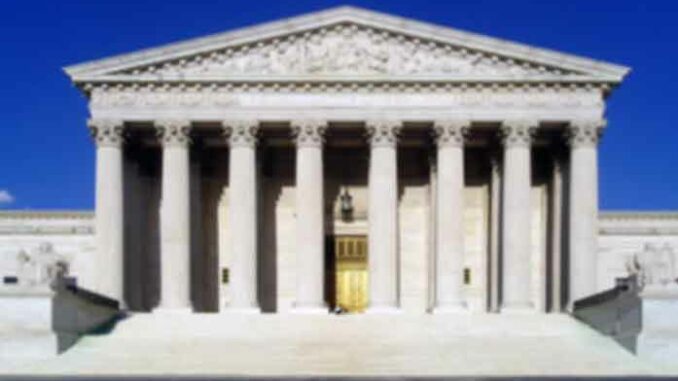
The city of Greece, New York has had a long standing practice of praying before official town meetings and believed it is constitutional and does not infringe on the First Amendment rights of non-believers who might be in attendance. Today, a divided Supreme Court ruled in agreement with the small New York community.
Justice Anthony Kennedy, the swing vote, joined the Court’s four conservative members in the 5-4 decision. The case, which was argued late last year, was considered one of the biggest religious freedom cases of the term.
The Court held that opening government meetings in the town of Greece with prayer “does not violate the First Amendment … and does not coerce participation by non-adherents,” Justice Kennedy wrote for the majority.
“The Supreme Court has again affirmed that Americans are free to pray,” said Alliance Defending Freedom Senior Counsel David Cortman. “In America, we tolerate a diversity of opinions and beliefs; we don’t silence people or try to separate what they say from what they believe. Opening public meetings with prayer is a cherished freedom that the authors of the Constitution themselves practiced. Speech censors should have no power to silence volunteers who pray for their communities just as the Founders did.”
“As a practice that has long endured, legislative prayer has become part of our heritage and tradition, part of our expressive idiom, similar to the Pledge of Allegiance, inaugural prayer, or the recitation of ‘God save the United States and this honorable Court’ at the opening of this Court’s sessions…,” the court’s opinion states. “That a prayer is given in the name of Jesus, Allah, or Jehovah, or that it makes passing references to religious doctrines, does not remove it from that tradition.”
Although the case centers on a New York town’s prayer practice, the court’s decision has ramifications upon other similar cases still in progress in lower courts, according to attorneys from Alliance Defending Freedom. ADF attorneys will seek to resolve those cases in light of the decision, and they plan a nationwide campaign to inform governmental bodies at all levels that they are free to include prayer in their public meetings.
“You shouldn’t be forced to forfeit your freedom to appease someone who doesn’t like what you say or believe,” said ADF Senior Counsel Brett Harvey. “Opponents of prayer want to use government to attack our freedom, but the Constitution established our government to protect our freedom.”
The case began in 2008 when Americans United for Separation of Church and State filed a lawsuit against the town, a suburb of Rochester, N.Y., on behalf of residents Susan Galloway and Linda Stephens.
As expected, Justice Elena Kagan, joined by the Court’s other liberal justices, and said in her dissent that while there is no “bright separationist line” between church and state in the Constitution, the town’s practice was unacceptable because, she said, it skewed heavily to the Christian faith. “Month in and month out for over a decade, prayers steeped in only one faith, addressed toward members of the public, commenced meetings to discuss local affairs and distribute government benefits,” she wrote.
